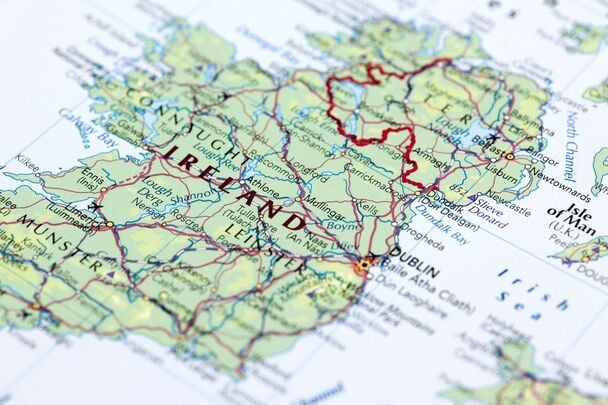New research published by the Economic and Social Research Institute (ESRI) in Ireland on Tuesday, April 15 shows a widening gap between the living standards in Ireland and Northern Ireland.
The Comparative Analysis of Economies of Ireland and Northern Ireland, which was commissioned as part of the ESRI's research programme with the Shared Island Unit, Department of the Taoiseach, provides a high-level comparison of the economies of Ireland and Northern Ireland (NI) in recent years.
Seamus McGuinness, an author of the report and a Research Professor at the ESRI, said: “The report provides a contemporary analysis of relative economic performance of both economies and allows for differences, in both the levels and evolution of key performance metrics, between Ireland and Northern Ireland to be better understood."
The report, the ESRI says, covers a broad range of dimensions including demographics and labour market trends, living standards, economic structures, education, health, and overall well-being.
The research recognises that the economies North and South on the island are distinct in important structural respects. Northern Ireland is part of the wider UK economy, with significant implications for trade and public policy. Ireland, on the other hand, is a national-level economy and an EU Member State, so direct comparisons between the two will not always be on a like-for-like basis.
The ESRI says that nevertheless, the research provides a range of important insights on the relative performance of both economies over recent years.
Among the key findings, the report found "widening gaps in all commonly used measures of living standards and these gaps favour Ireland. It focuses on reliable measures of living standards that are not distorted by globalization effects, which is important for Ireland."
The report further found: "Household disposable income in Ireland is 18.3% higher than in NI (as of 2018), and the gap has widened over time.
"Ireland’s GNI* [Gross National Income] per capita in 2022 was 57% higher than NI’s GDP per capita, reflecting stronger economic growth.
"In terms of wages, the data show a positive gap favoring Ireland, with hourly earnings 36 percent higher than in NI in 2022."
Elsewhere, the research found that education enrolment rates are higher in Ireland than in Northern Ireland, and, overall, early school leaving rates are three times higher in Northern Ireland than in Ireland.
The report also found that "as was the case with many other key metrics, the gap between Ireland and NI in life expectancy has also been widening over recent years." In 2021, life expectancy for children aged below one in Ireland was 82.4 years compared to 80.4 years in NI, a gap of two years.
Adele Bergin, an author of the report and an Associate Research Professor at the ESRI, said: “Ireland has experienced stronger economic growth, higher wages, and higher living standards in recent years.
"The gap in economic performance and well-being indicators between Ireland and Northern Ireland is widening.”
You can read the full report here.
“This report illustrates how partition has failed"
Later on Tuesday, Sinn Féin MLA Declan Kearney said the report illustrates the need for Irish unity.
“This report illustrates how partition has failed workers, families, businesses, and communities on our island, and underlines the need to build a new Ireland,” said Kearney, Sinn Féin's National Chairperson.
“Time and again, statistics and analysis are laid bare about how the partition of our island adversely impacts on ordinary people, quality of life standards, trade, and economic productivity and growth.
“Our shared future on this island lies in Irish unity and a fully integrated economic model, with full membership of the European Union. That is why it’s imperative for political leaders to begin preparations for a unity referendum.
“The conversation on a new Ireland is thriving across society. The Irish government must support these conversations by putting in place forums to facilitate engagement on all key policy areas, and commence the phase of planning and preparing for Irish unity.
“To that end, An Taoiseach should establish a Citizens’ Assembly on Irish unity and appoint a Minister for Reunification. These are sensible and practical measures.
“Everyone must have the chance to have their say about the future of our shared island."
Sinn Féin MLA Declan Kearney has said today’s report from the Economic and Social Research Institute (ESRI) illustrates the need for Irish unity.@DeclanKearneySF https://t.co/E1czzjNwD5
— Sinn Féin (@sinnfeinireland) April 15, 2025
Kearney continued: “It is widely recognized that economic productivity and overall GDP will be maximized through national reunification. Harmonized public services will inevitably operate more effectively and with greater capacity in an all-Ireland context.
“It is now time to start harnessing the massive opportunities presented by Irish unity and to begin planning systematically for constitutional change.”




Comments